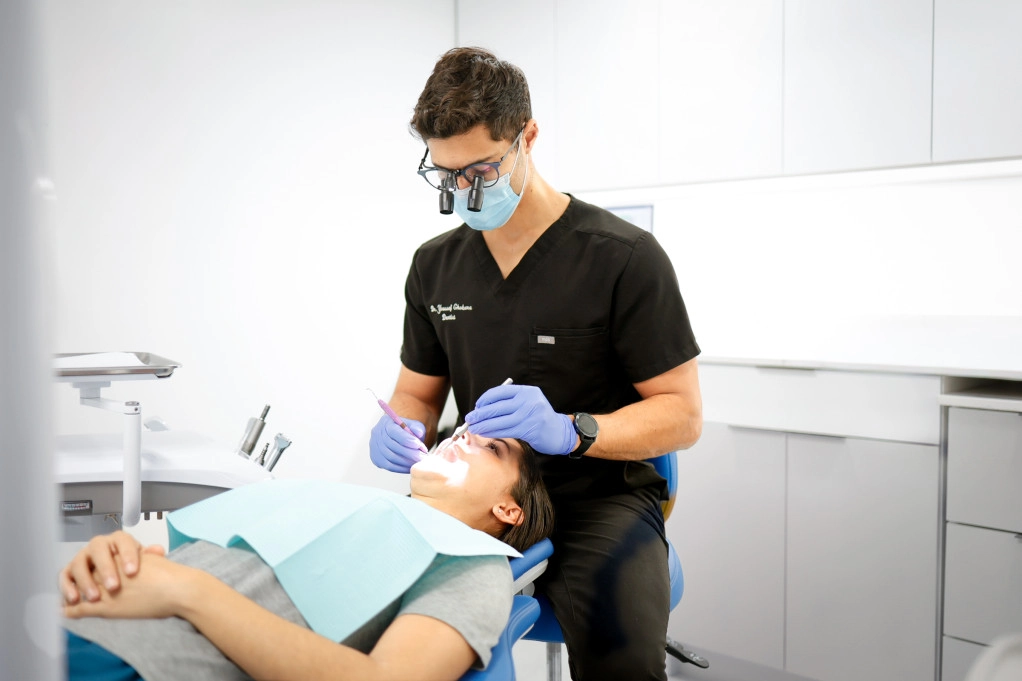
Oral Exams
Despite its seemingly regular nature, a dental exam has a bigger impact than most people realise. These examinations provide an opportunity to identify minor alterations early on, before they develop into more significant issues. Exams should be performed every six months for the majority of patients; however, this might change based on continuing care and personal needs.
The process is straightforward and gentle, and it gives your dentist a chance to assess not just your teeth, but your overall oral health.
What Happens During the Exam
Your teeth are carefully examined at the start of each appointment to search for any early indications of decay, fissures, or unusual wear. Additionally, fillings are examined to make sure they are intact and are operating as planned.
Gum health is another key focus. Redness, bleeding, or subtle changes in the gumline can point to early stages of gingivitis or more advanced periodontal concerns. Catching these signs early means treatment can stay simple and effective.
Examined are the soft tissues of the mouth, such as the tongue, cheeks, and roof of the mouth. This is where, sometimes without the patient's knowledge, tests for tissue-related disorders and mouth cancer are conducted.
Additionally, your jaw and biting function are examined, particularly if you have any discomfort when speaking or eating or clenching or grinding. Digital X-rays can often be used to look at regions under the surface, such as concealed deterioration, bone health, and roots.
Beyond the Teeth
The examination frequently includes your jaw mobility and biting. Even though you haven't mentioned it directly, you may notice subtle indications of jaw tightness, clenching, or grinding. Over time, these behaviours might erode teeth and increase sensitivity or headaches.
Digital X-rays may be taken, depending on your prior set and whether there are any unnoticeable problems. These images can identify degeneration beneath the surface, infections, or changes in the bone—issues that are commonly disregarded until they cause discomfort.
A Two-Way Discussion
Exams are more than simply a personal experience. They're an opportunity to learn about what's going on in your mouth, ask questions, and discuss anything that has been on your mind. It is worth talking about whether you are experiencing greater sensitivity, a dry feeling, or a change in the way your teeth come together when you bite.
Your dentist may also talk through your home routine and offer suggestions. Sometimes, a small change in technique or product can make a noticeable difference in your comfort or long-term oral health.
Why It’s Worth Doing Regularly
Smaller problems are frequently simpler to handle. Frequent examinations help guarantee that any abnormalities are identified early, when treatment is typically easier, quicker, and less expensive. Even if everything is OK, a test leaves a record that may be compared to later.
More than anything, exams are part of a larger goal: keeping your mouth healthy and comfortable for the long term, without surprises.
If you’re due for an exam, or if you’ve noticed something that doesn’t feel quite right, it’s a good time to schedule a visit. A short check today can make a meaningful difference tomorrow.

